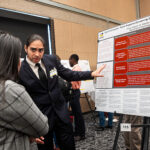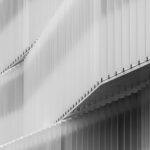
To kick off the Scholars for the Good Land pre-college program, the participating high school students were given a tour of the UW-Milwaukee campus. (UWM Photo/Elora Hennessey)
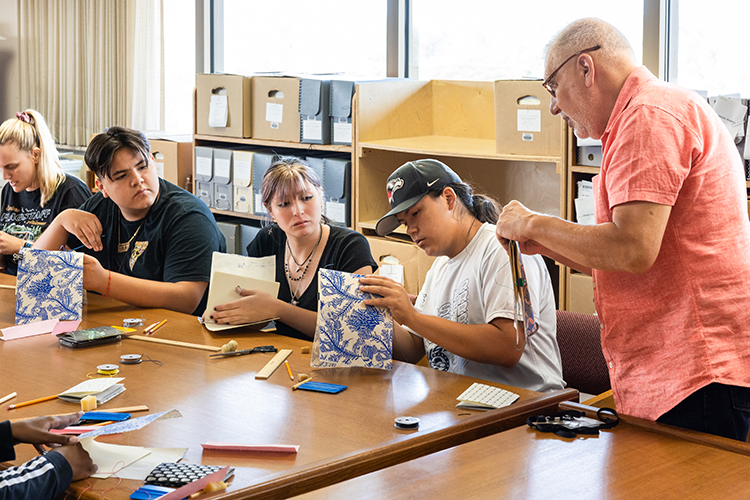
Max Yela, head of special collections at the UWM Libraries, teaches the students how to make and bind their own journals. (UWM Photo/Elora Hennessey)

The Good Land scholars, their mentors and Max Yela all show off the journals they made. (UWM Photo/Elora Hennessey)
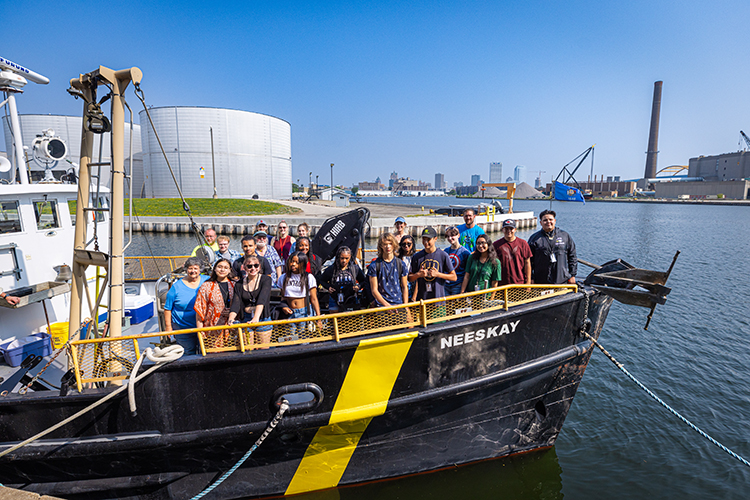
Good Land scholars went with faculty and staff from the School of Freshwater Sciences on the Neeskay research vessel, the only year-round research vessel on the Great Lakes. (UWM Photo/Elora Hennessey)
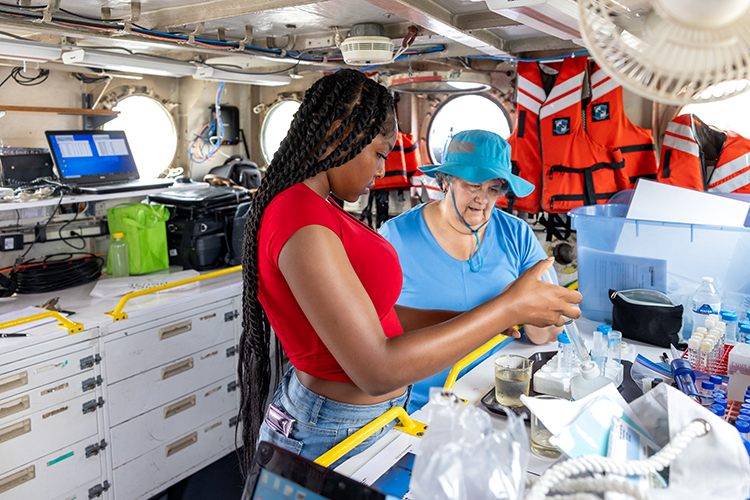
While on the Neesaky, students took water samples and tested them with Senior Scientist Carmen Aguilar-Diaz. (UWM Photo/Elora Hennessey)
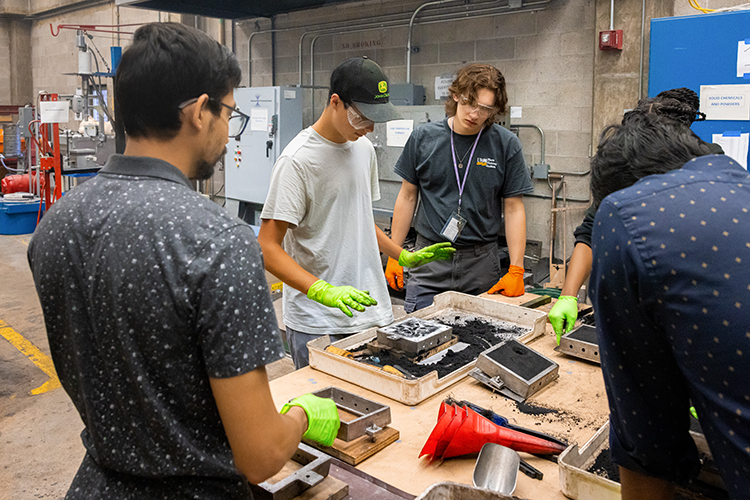
Students and faculty from the College of Engineering & Applied Science taught the scholars on how to create metal castings at the UWM Foundry lab. (UWM Photo/Elora Hennessey)
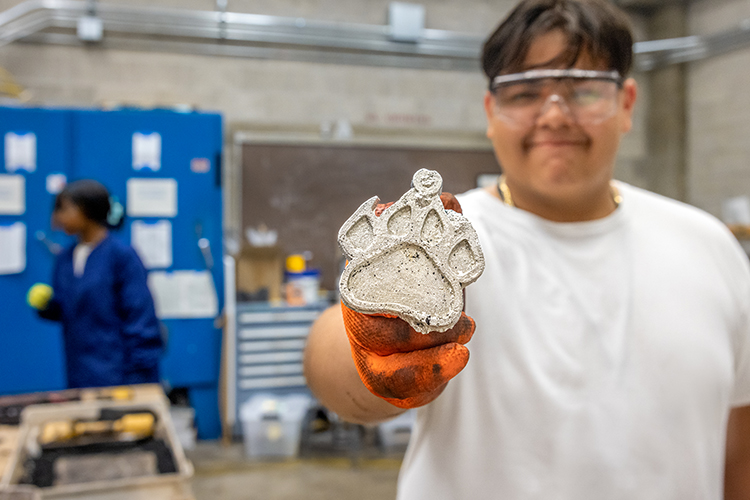
One of the scholars displays a metal casting he made in the shape of the paw print. (UWM Photo/Elora Hennessey)

The students visited several biomedical labs and classrooms within the College of Health Professions and Sciences, where they learned about the many career opportunities in the field. Pictured are the students learning about immunohematology, which in part studies how to make blood safe for transfusion. (UWM Photo/Elora Hennessey)
The Scholars for the Good Land is a free pre-college program for Indigenous high school students interested in learning more about science, education and American Indian culture. Throughout the program, students learn about various majors offered at UW-Milwaukee by engaging in hands-on activities and building their toolbox for college success.
This year, students stayed in Sandburg Residence Hall for eight days. Some of the activities students took part in include a campus tour, water sampling and testing on the Neeskay research vessel, metal casting at the UWM Foundry, stargazing at the UWM Planetarium, piecing together animal bones in anthropology, making turtle rattles and visiting the UWM Field Station to learn about maple sugaring.
Students also learned about research opportunities, scholarships and how to be involved as a college student.








